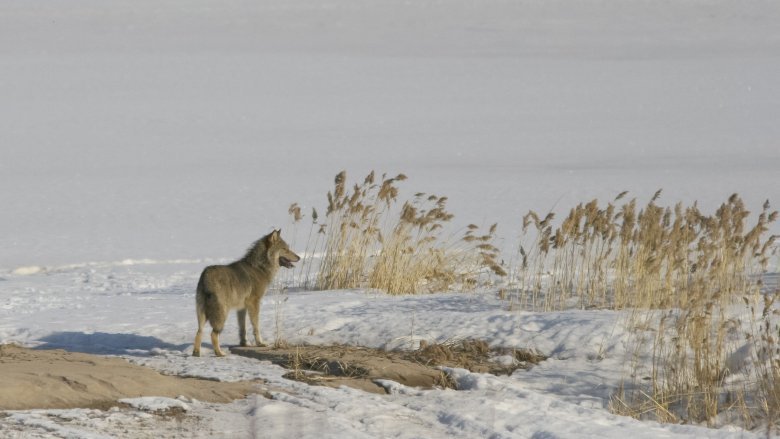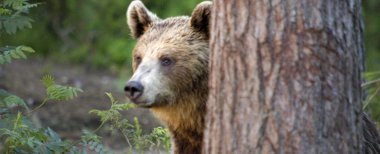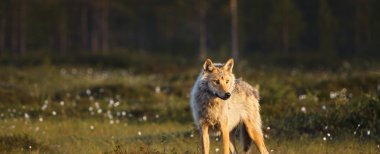latest news
Working group preparing the Management Plan for the Wolf Population discusses illegal hunting of wolves

In its meeting on 15 February 2019, the working group preparing the Management Plan for the Wolf Population discussed illegal hunting of wolves and measures to improve the social acceptance of the wolf. According to a police estimate, illegal hunting of wolves has been commonplace in Finland. However, only a small number of incidents of illegal hunting of wolves come to the attention of the supervisory authorities.
The Criminal Code of Finland recognises three types of offences related to illegal hunting: hunting offences, aggravated hunting offences and unauthorised hunting. In the case of wolves, as with other large carnivores, illegal killing is classified as an aggravated hunting offence for which the offender can be sentenced to imprisonment for at least four months and at most four years.
According to police estimates, illegal hunting of wolves can be considered a common and therefore significant problem in Finland. It is also an example of a hidden crime, as the majority of incidents do not come to the attention of the supervisory authorities. The study “Large carnivore policy in crisis – poaching and community support” estimates that only ten per cent of illegal killings of wolves are brought to the attention of the police.
Investigating illegal killings or attempted killings of wolves, and large carnivores in general, requires targeted monitoring, specialised expertise and time. With this in mind, the working group was of the opinion that more resources are needed for police investigation of incidents. Studies have revealed that illegal hunting is often carried out by small, local groups and that the risk of being caught is diminished by local communities’ silence about the incidents. Local communities and hunting associations play an important role in creating negative attitudes towards the illegal killing of wolves and other large carnivores and in communicating information about illegal killings to the police.
The working group also heard a presentation about a doctoral thesis that used population and survival models to estimate the role of poaching in the mortality of wolves in Finland and Sweden in the 2000s. According to the study, poaching was the most common cause of death for wolves, but the majority of instances of poaching remain unconfirmed. The number of wolves whose fates were unknown was also relatively high. The risk of illegal killing increases in late winter. The number of illegal killings seems to vary from year to year.
Information on the cause of wolf deaths investigated by the Finnish Food Authority is available here (in Finnish). Of the wolves whose deaths were investigated by the Finnish Food Authority (formerly Evira) in 2001–2014, 17 per cent were killed
What can be done to increase tolerance for wolves?
The working group also discussed the theme of tolerance for or social acceptance of wolves, which is connected to the question of reducing the rate of illegal killings. They emphasised that from the perspective of social acceptance, the wolf is a challenging species in many ways. The theme of social acceptance can be used to approach the discussion from perspectives other than those directly related to the wolf or wolf policy.
The working group explored the theme from the perspective of wolf territory cooperation groups and research on environmental conflicts. Grassroots projects have proven to be successful conflict management or resolution methods in many cases involving environmental conflicts. In these situations, collective local decision-making and planning and close cooperation with interest groups play an integral role. The working group stressed the important role of local wolf territory cooperation groups, whose tasks include creating an overall picture of the situation concerning wolves in their areas, providing information to local residents and planning measures to prevent conflicts. The groups also develop territory-specific wolf management planning and work to improve the flow of information between different interest groups.
Finally, the working group stressed the fact that the discussion on the coexistence of wolves and people in Finland should include more examples of the benefit of wolves for the ecosystem and should highlight successful practices, such as those implemented in other countries with wolves.
Read more:
Large carnivore policy in crisis – poaching and community support (report in Finnish)
Poaching regulates legally hunted wolf population in Finland
One way or another: predictors of wolf poaching in a legally harvested wolf population
News archive
Information on large carnivores in Nordic countries
SKANDULV - wolf research in Scandinavia. SKANDULV is working on issues connected with wolf ecology and administration. The main questions concern wolf populations, movement patterns, genetics, ecosystem effects etc.


